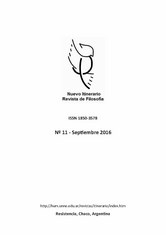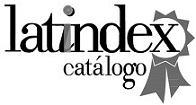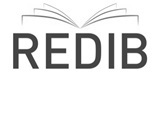Ruptures and continuities in the Brownian recovery of Foucault’s research on neoliberalism
DOI:
https://doi.org/10.30972/nvt.1927001Keywords:
Foucault, Wendy-Brown, neoliberalism, democracy, homo-economicusAbstract
The Michel Foucault’s courses given at the Collège de France, between 1977 and 1979, wield a lucid critic of the neoliberalism, but especially innovative for its time. However, his ideas have not been exempted of controversy, which are also added to the series of innovations that the last forty years of neoliberalism have brought, leaving some parts of Foucault’s investigation out of date. That is why Wendy Brown, assuming its legacy even against the author, offers an interesting revision of the scope and limits of the governmental studies, drawing a series of continuities and ruptures between her own ideas and Foucault’s courses. So is that, elaborating an original theory about the Homo Politicus from an exam of the Foucauldian Homo Economicus, this thinker reveals the disastrous effects that neoliberalism unleashes over democracy and its emancipatory imaginary; a problem by the way, highly dismissed by Foucault. The present article rebuilds, in general terms, the different readings and critics that surrounds the work of the philosopher, later explaining the Brownian appreciation in this regard, and her studies on democratic crises in the neoliberal era.
References
AUDIER, S. (2015) Penser le «néolibéralisme»: le moment néolibéral, Foucault et la crise du socialismo. Lormont: Éditions du Bord de l’eau.
BOAS, C. y GANS-MORSE J. (2009) Neoliberalism: From New Liberal Philosophy to Anti-Liberal Slogan. Studies in Comparative International Developement, (44), 137-161. Doi: 10.1007/s12116-009-9040-5
BROWN, W. (2015) Undoing the Demos: Neoliberalism’s Stealth Revolution. New York: Zone Books.
BROWN, W. (2019) In the Ruins of Neoliberalism: The rise of antidemocratic politics in the west.New York: Columbia University Press.
CASTRO, E. (2013) En Foucault hay una crítica clara del liberalismo y del neoliberalismo / Entrevistado por Enrique de la Calle. Agencia Paco Urondo. Recuperado de: https://www.agenciapacourondo.com.ar/cultura/en-foucault-hay-una-critica-clara-del-liberalismo-y-del-neoliberalismo.
DEFERT, D. (1991) Popular life and insurance technology. En: Burchel G. et al (1991) The Foucault Effect. Studies in Governmentality (pp. 211-233) Chicago: University Chicago Press.
DONZELOT, J. (1979) The policing of families. New York: Pantheon Books.
EWALD, F. (1986) L’État providence. Paris: Grasset.
EWALD, F. (1991) Insurance and Risk. En: Burchel G. et al (1991) The Foucault Effect. Studies in Governmentality (pp. 197-210) Chicago: University Chicago Press.
FEDERICI, S. (2004) Caliban and the Witch: Women, the body and primitive accumulation. Brooklyn: Autonomedia.
FOUCAULT, M. (1968) Las Palabras y las Cosas: una arqueología de las ciencias humanas. (Frost Elsa C., Trad.) Buenos Aires: Siglo XXI Editores.
FOUCAULT, M. (2002a) Arqueología del Saber. (Garzón del Camino A., Trad.) Buenos Aires: Siglo XXI Editores.
FOUCAULT, M. (2002b) Vigilar y Castigar: nacimiento de la prisión. (Garzón del Camino A., Trad.) Buenos Aires: Siglo XXI Editores.
FOUCAULT, M. (2008) Nacimiento de la Biopolítica: Curso en el Collège de France 1978-1979. (Horacio Pons, Trad.) Buenos Aires: Fondo de Cultura Económica.
FOUCAULT, M. (2011a) Historia de la Sexualidad 1: La voluntad del saber. (Ulises Guiñazú, Trad.) Buenos Aires: Siglo XXI Editores.
FOUCAULT, M. (2011b) Seguridad, Territorio, Población: curso en el Collège de France 1977-1978. (Horacio Pons, Trad.) Buenos Aires: Fondo de Cultura Económica.
HUNT, A. (1996) Governance of the consuming passions: a history of the sumptuary law. London: Macmillan Press.
HUNT, A. (1999) Governing morals: a social history of moral regulation. Cambridge: Cambridge University Press.
LARRIGUE, M. (2011) Un cuerpo a dos puntas: homo juridicus y homo oeconomicus en la teoría de la propiedad de John Locke. VI Jornadas de Jóvenes Investigadores. Instituto de Investigaciones Gino Germani, Facultad de Ciencias Sociales. Universidad de Buenos Aires, Buenos Aires.
MILLER, P. (1988) Accounting for progress — National accounting and planning in France: A review essay. Accounting, Organizations and Society, 11 (1), pp. 83-104.
MILLER, P. y O’LEARY T. (1987) Accounting and the construction of the governable person. Accounting, Organizations and Society. 12 (3), pp. 235-265.
MILLER, P. y O’LEARY T. (1989) Hierarchies and American Ideals, 1900-1940. Accounting, Organizations and Society. 14 (2), pp. 250-265.
ROSANVALLON, P. (1978) Pour une nouvelle culture politique. Paris: Seuil.
ROSANVALLON, P. (1999) Le Capitalisme Utopique. Histoire de l’idée de marché. Paris: Seuil.
ROSE, N. (1988). Calculable minds and manageable individuals. History of the Human Sciences, 1(2), pp. 179–200.
ROSE, N. (1989) Governing of the soul: the shaping of the private self. London: Free Association Books.
ROSE N. y MILLER P. (1992) Political power beyond the state: problematics of government. The British Journal of Sociology, 43 (2), pp. 173-205.
ROSE N. y MILLER P. (1990) Governing Economic Life. Economy and Society, 19 (1), pp. 1-31.
ROSE N. y MILLER P. (1988) The Tavistock Program – The government of subjectivity. Sociology, 22 (2), pp. 171-192.
WILLIAMSON J. (2003) Our Agenda and the Washington Consensus. En: Kuczynski Pedro-Pablo, Williamson J. (2003). After the Washington Consensus: Restarting Growth and Reform in Latin America (pp. 323-331). Washington, DC: Institute for International Economics.
ZAMORA, D. (2014) Critiquer Foucault. Les années 1980 et la tentation néolibérale. Bruxelles: Éditions Aden.
Downloads
Published
How to Cite
Issue
Section
License

This work is licensed under a Creative Commons Attribution-NonCommercial 4.0 International License.
Les autores ceden a Nuevo Itinerario los derechos de publicidad de sus trabajos, toda vez que hayan sido admitidos como parte de alguno de sus números. Ello no obstante, les autores retienen los derechos de propiedad intelectual y responsabilidad ética así como la posibilidad de dar difusión propia por los medios que consideren.












51.jpg)

